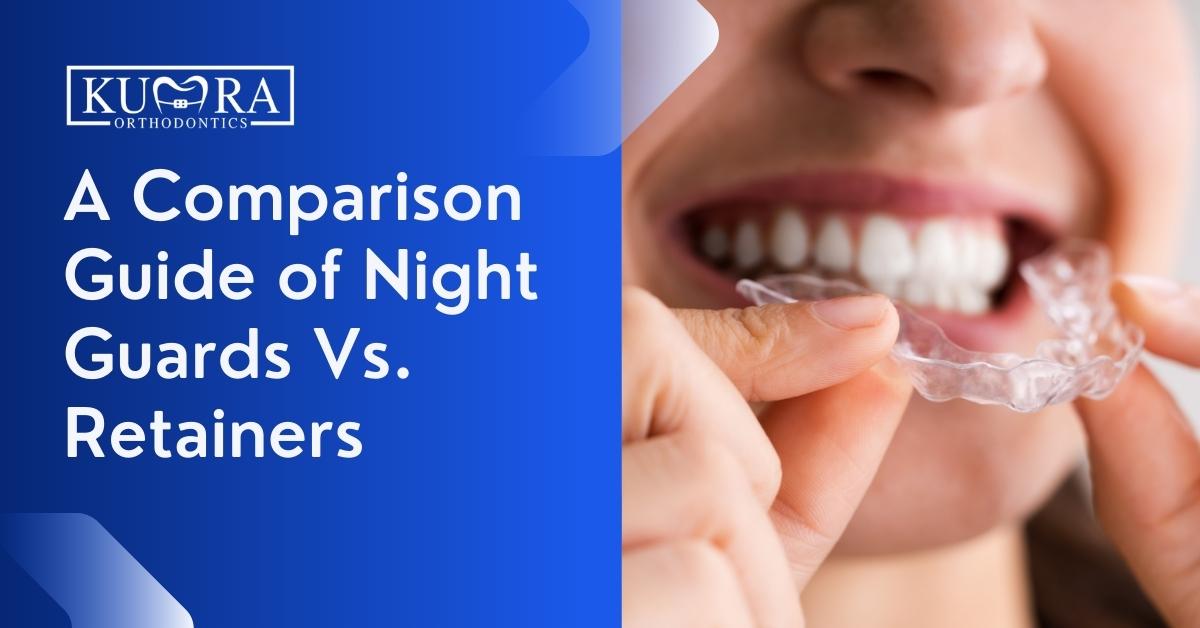While night guards and retainers may appear the same thing to the casual observer, they are not. While a night guard may resemble a plastic retainer in appearance, its protective function is quite different. A retainer is intended to assist teeth in remaining in place, whereas a night guard is designed to protect teeth. Which one is best for you will depend on your unique circumstances and the advice provided by your dental professional.
This article will explore the retainer night guard combination treatment process.
What is Teeth Grinding (Bruxism)?
Teeth grinding, medically referred to as bruxism, is an unconscious and chronic grinding of one’s teeth. Bruxism typically occurs while a person sleeps, although it can sometimes occur while a person is awake. Mild cases of teeth grinding may be treated without further intervention. However, grinding your teeth can result in a number of unpleasant conditions that are detrimental to your teeth and can begin to interfere with your daily activities. Bruxism is not synonymous with TMJ. These are comparable, but not identical, difficulties.
While there are numerous reasons for teeth grinding, including anxiety and sleep disorders, the potential for damage to your teeth remains the same.
Related: Does Invisalign Help with Teeth Grinding?
How Night Guard Works
Night guards are devices worn over the upper or lower teeth during the night to prevent the teeth and jaw from clenching or grinding (otherwise known as bruxism). Your night guard will be composed of a softer, more flexible rubber or a tougher plastic, depending on your demands and the severity of teeth grinding. While night guards resemble plastic retainers in appearance, their defensive function is very different.
Whether your night guard is constructed of a softer or a harder plastic is determined by your level of teeth grinding and your specific needs. Individuals who suffer from teeth grinding and clenching should wear night guards while sleeping as a preventative measure.
According to the American Sleep Association, these guards can be purchased over-the-counter or customized by a dental practitioner. They are available in two types of plastic: soft or hard and are worn over the top or bottom teeth. Another distinction between a retainer and a night guard is the manner and duration of their wear. While night guards are worn exclusively during sleep, retainers can be worn throughout the day or are permanently installed in the mouth.
The following are the type of mouth guards:
- Soft Night Guard: These custom-molded soft night guards are for less severe teeth grinding. Also ideal for teeth clenching.
- Hybrid Night Guard: This hybrid custom night guard is designed for moderate to heavy teeth grinding.
- Hard Night Guard: This hard custom teeth night guard is designed for heavy to severe teeth grinding.
Needing an orthodontic appointment?
Visit Kumra Orthodontics Washington, DC or Kumra Orthodontics Stafford, VA, and request an appointment with us!
How Retainers Work
Retainers are used to maintain the position of your teeth following orthodontic treatment. After your teeth have been shifted to their ultimate position at the conclusion of therapy, the surrounding gum and bone will need time to acclimatize to the new position. Retainers must be worn according to your dentist’s recommendations to be successful. Following that, you may be able to wear them only in the evenings and while sleeping.
Retainers are custom-made to suit your teeth precisely. Each retainer is custom-made and fitted to you, just as a tailor does with a suit. For instance, removable retainers are often constructed of translucent plastic-like material and wire and may be placed and removed by the patient.
They’re designed to retain your teeth in place and prevent them from migrating. They may feel unusual or uncomfortable at first, but if you wear them frequently and follow your dentist’s instructions, this sensation should subside after a few weeks as your teeth settle.
If you wear a retainer at night to keep your teeth straight, you may be tempted to use it to alleviate bruxism, aches, and pains. This may be sufficient in moderate situations. On the other hand, a retainer and a night guard are two distinct appliances with distinct functions. If you opt to use a retainer as a night guard, you risk wearing it down, making it uneven and uncomfortable, or even cracking it, necessitating a costly repair. A night guard is a better solution than a retainer when it comes to teeth grinding.
Related: Types of Retainers You Should Know About
Can I Wear My Retainer With My Night Guard?
Your orthodontist may recommend that you alternate between wearing your night guard and retainer. However, you should not combine these two devices. On the other hand, night guards are normally a little more robust and can be worn every night. However, you should not put your retainer ahead of your guard. Your dentist can assist you in determining the optimal schedule and making treatment recommendations.
Can I Wear Retainer as Night Guard
Suppose you have a hard plastic retainer that completely covers your lower or upper teeth during sleep. It may provide some protection and relief for minor tooth grinding and clenching, but retainers are not designed to withstand the beating that your teeth take when you grind your teeth at night and therefore is not the best solution.
Retainers are often quite thin, as their purpose is to keep your teeth in place, not to protect them. For the majority of people, wearing a retainer as a night guard will eventually result in holes and uneven wear on the retainer.
Can I Wear a Night Guard as a Retainer?
Whether customized or off-the-shelf, the majority of night guards do not fit snugly enough to function as a retainer.
Typically, you will wear a night guard on either your upper or lower teeth. Therefore, if you require a retainer for your top and bottom teeth, you may also require one for the teeth that lack a night guard.
If you recently began using a retainer and also require a night guard, your dentist or orthodontist may recommend that you continue wearing your retainer during the day and on some evenings. Certain retainer users can alternate nights wearing night guards and nights wearing retainers. However, because each grinder and braces user has unique needs, consult with your dentist to determine how to balance night guard and retainer use.
Consult with Kumra Orthodontics to learn more about night guard vs. retainer
With an understanding of the key differences between a retainer and a night guard, you may confidently ask your dentist which option is best for you.
If you’re still unsure what type of dental appliance is best for you, don’t hesitate to reach out to Kumra Orthodontics. Our team can help you determine the right treatment plan and provide expert advice on keeping your teeth healthy and looking their best.



